Ecommerce
10 Tips for Successful Selling on Etsy for Beginners
Etsy is a popular e-commerce platform that attracts people passionate about crafts, art, and unique items. With a growing number…
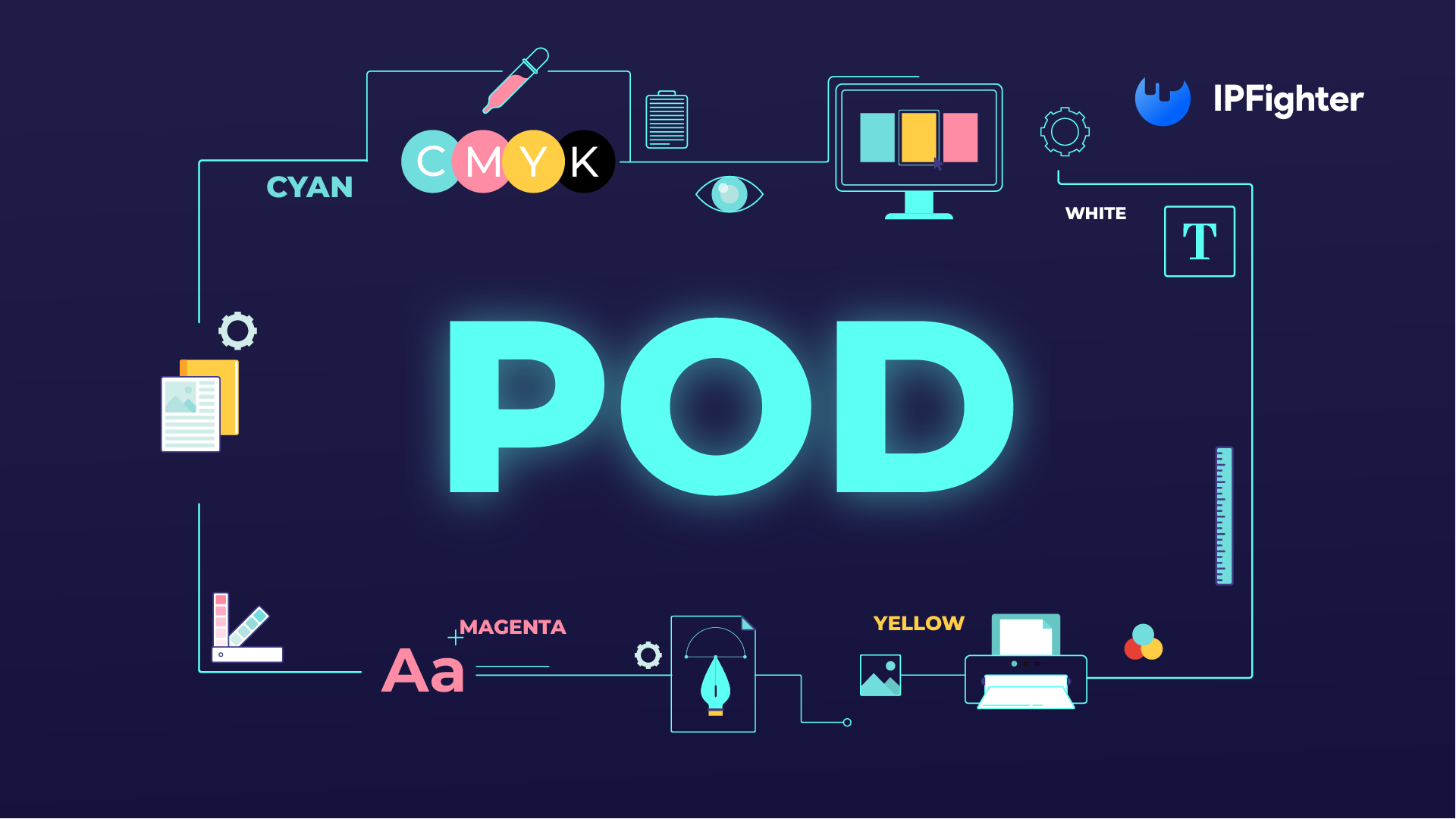
POD (Print on Demand) business is becoming one of the prominent trends in e-commerce today. With rapid technological advancements and increasing demand for product personalization, the POD business model attracts not only newcomers to the market but also large enterprises seeking growth opportunities.
To clearly understand what POD business is, we first need to explore its basic concept. This model allows businesses to open online stores and print products only when orders are placed. This eliminates the need for large inventories, minimizing financial risk.
The POD business model is ideal for those wanting to venture into entrepreneurship with limited capital. Additionally, as consumers increasingly prefer unique, personalized products, POD has become an attractive choice.
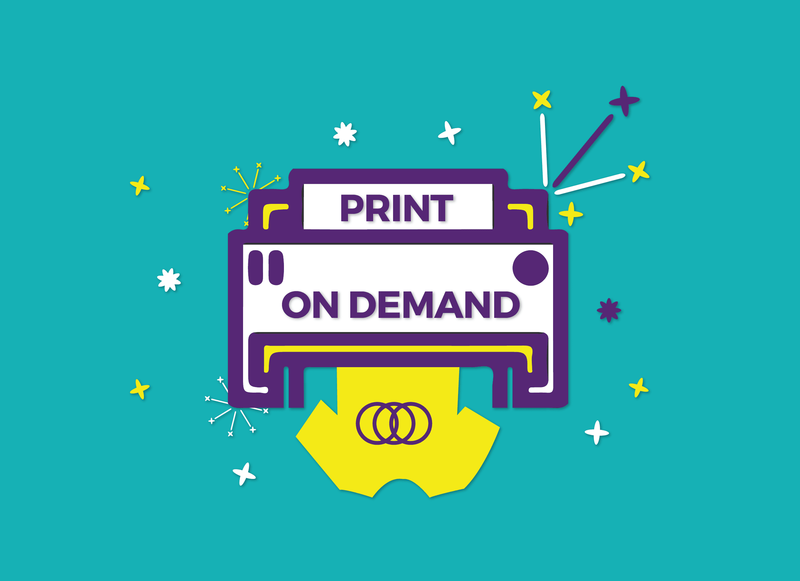
POD, or Print on Demand, refers to a method of producing products on demand. When a customer places an order, the product is printed and shipped directly to them. This approach enables retailers to offer a wide variety of products without the burden of managing inventory.
POD is widely used across industries such as fashion, accessories, home goods, and more. By partnering with professional printing factories, businesses can deliver high-quality products without significant upfront investment.
One major difference of the POD business compared to traditional models is the lack of need for stockpiling goods. In traditional businesses, bulk purchasing and maintaining inventory are necessary, often leading to waste if products fail to sell.
In contrast, POD allows small businesses to easily test new ideas without substantial investment. Entrepreneurs can experiment with various designs and identify what resonates with customers, all without committing to mass production.
The POD business model operates on the principle of “print when ordered.” This approach not only reduces costs but also offers flexibility in product and design choices, making it an attractive option for entrepreneurs.
When customers place an order through your platform, the system automatically sends the order details to the printing service provider. The supplier then prints the product and ships it directly to the customer, eliminating the need for your intervention in production or delivery.
Here’s how the process works:
This streamlined system allows you to focus on marketing and promoting your products rather than managing inventory or handling shipping logistics.
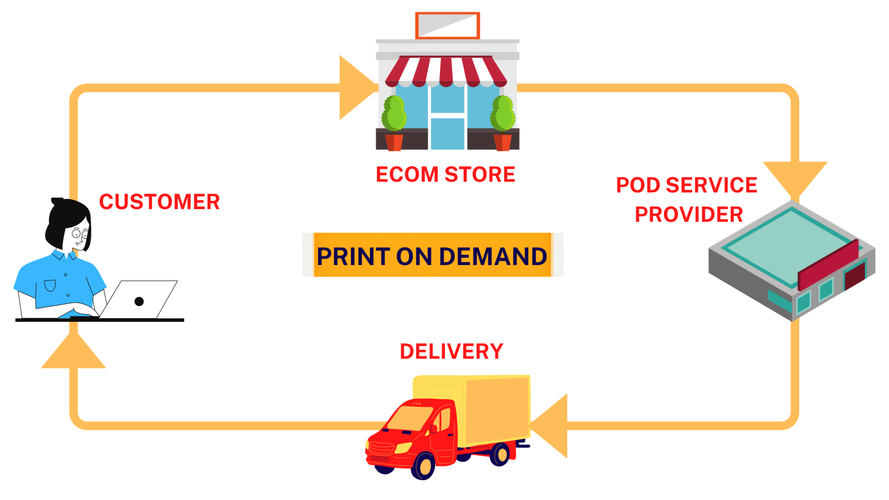
Like any business model, the POD business has its pros and cons.
The POD business model can be implemented across various platforms, depending on your needs and preferences. Today, many prominent platforms provide robust support for those venturing into POD business.
Advantage:
Disadvantages: Product prices may be higher than some other platforms.
Advantage:
Disadvantages: Product quality may not be consistent between suppliers.
Advantage:
Disadvantages: Features are somewhat limited compared to other platforms.
Advantage:
Disadvantages: Sales may be unstable and highly competitive.
Advantage:
Disadvantages: The user community is not as large as other platforms.
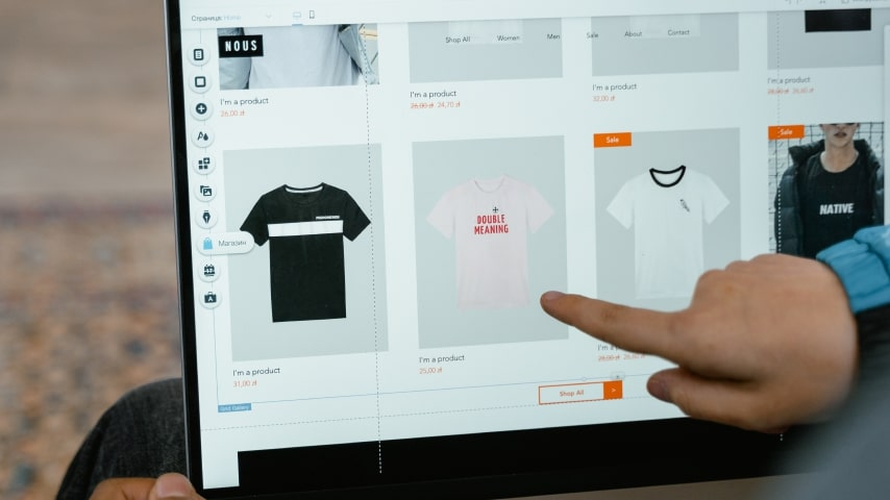
In addition to dedicated POD platforms, many major e-commerce platforms support the POD business model. These platforms not only help expand your customer reach but also offer tools for efficient store management.
Advantage:
Suitable for: Beginners and those who want complete control of their online store..
Advantage:
Suitable for: People who want to sell handmade and unique products.
Advantage:
Suitable for: People who want to reach a large market and have a large number of orders.
Advantage:
Suitable for: People who already have a WordPress website and want to expand their business.
Advantage:
Suitable for: People who want to retail products flexibly.
The POD business offers a wide range of product options to suit different niches and customer preferences. Here are some of the most popular product categories in the field:
Fashion products are consistently among the top choices for the POD business model. T-shirts, hoodies, and hats can be customized with diverse designs and colors, ranging from simple patterns to intricate artwork.
Using slogans, images, or personalized designs can help capture customer interest and increase sales. With the rise of social media, POD fashion products can easily go viral, attracting a large consumer base.
Electronic accessories are another promising niche in the POD business. Items like phone cases and laptop covers can be personalized with unique designs, catering to customers’ desires for individuality and style.
These products are highly sought after as they not only protect devices but also reflect personal tastes, making them an excellent opportunity for businesses to explore.
The POD business model extends beyond fashion and accessories to household items and decorative products. Items such as prints, mugs, and pillows become standout pieces when customized with personalized designs.
These products are particularly popular as gifts for holidays or special occasions, creating a steady demand and a lucrative market for POD sellers.

If you are planning to start a POD business, here are the basic steps to guide you:
Begin by identifying the niche market you want to target. Selecting the right niche makes it easier to attract your ideal customers and stand out from competitors.
Conduct market research, analyze your competitors, and stay informed about consumer trends to make smart decisions. Choose products that not only have high potential but also align with your interests and expertise.
After defining your niche and product, the next step is to choose a suitable POD business platform. Consider factors such as service fees, print quality, product variety, and ease of use.
You may want to test multiple platforms to determine which one streamlines your operations and optimizes your business processes.
Design plays a crucial role in the success of a POD business. Create unique, eye-catching designs tailored to your target audience. If you lack design skills, consider hiring a freelance designer to bring your ideas to life.
To market your products effectively, leverage social media platforms, SEO strategies, and paid advertising to reach a broader audience. Engage with your customers, respond to feedback, and build a loyal community around your brand.
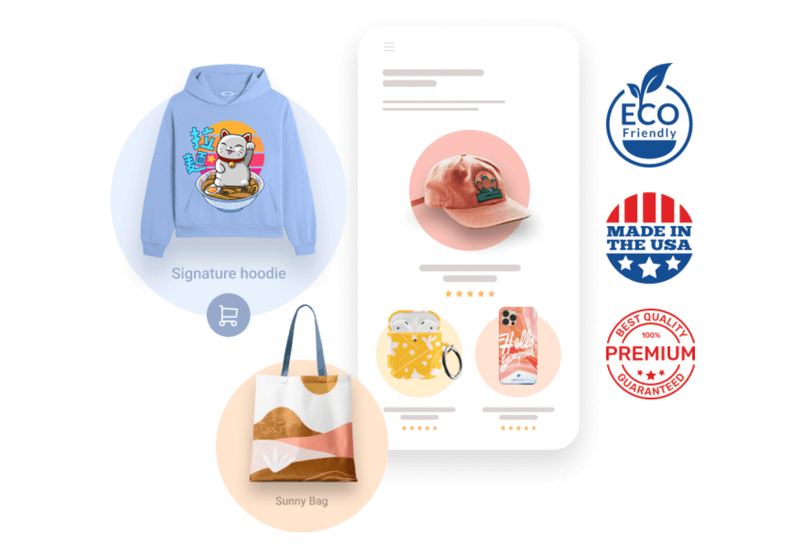
The POD business isn’t as simple as opening a store and waiting for customers to arrive. To ensure success, there are several important factors to keep in mind.
One of the most important factors in the POD business is choosing the right printing partner. Product quality will directly affect customer satisfaction.
Research carefully about the reliability of suppliers, read reviews from other traders and request product samples before long-term cooperation.
Production and shipping costs are two factors that can greatly impact your profits. Find ways to optimize to ensure you can compete with other competitors.
You may need to negotiate prices with your printing partner or choose reasonable shipping methods to minimize costs.
When starting a POD business, it is easy to make some common mistakes such as unprofessional design, not researching the market deeply enough or not having a clear marketing strategy.
Learn from the mistakes of others and prepare well before launching your product.
The POD business model offers significant potential for those looking to start their entrepreneurial journey in e-commerce. With advantages like low capital requirements, product flexibility, and opportunities for personalization, it has become a preferred choice for many young entrepreneurs.
However, achieving success in this field requires careful preparation, from selecting a niche and designing high-quality products to crafting an effective marketing strategy. Hopefully, this article has helped you better understand what is POD business and inspired you to embark on your own journey.
Recent
Etsy is a popular e-commerce platform that attracts people passionate about crafts, art, and unique items. With a growing number…
Amazon, a giant in the field of e-commerce, has created countless attractive opportunities for making money through various business models,…
TikTok is a vibrant platform for creators. It is currently a social network highly favored by young people and regularly…